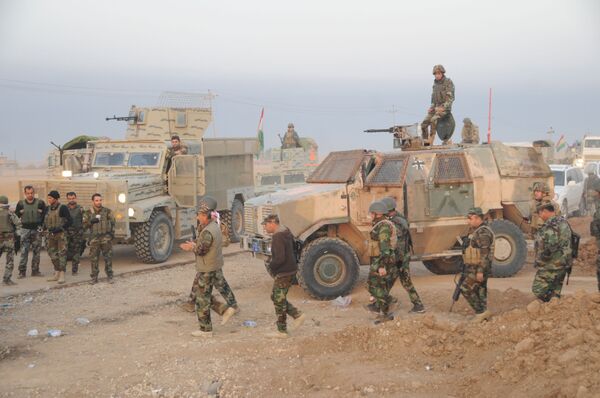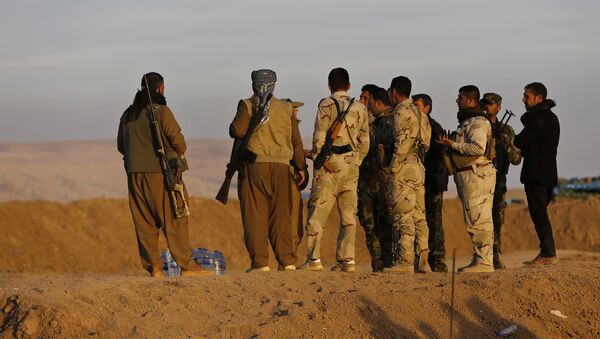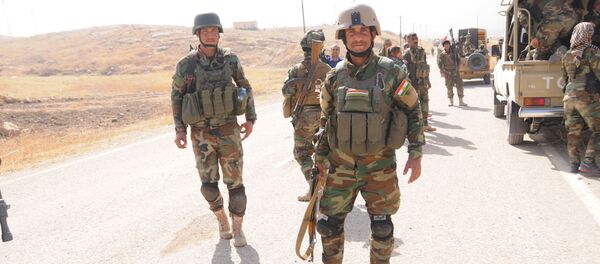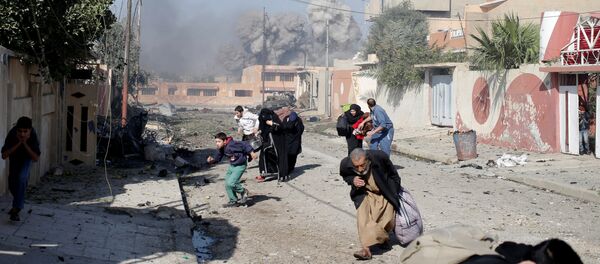According to the agreements between the Defense Ministries of Iraq and Kurdistan as well as the Pentagon, Kurdish militias can stay in the areas where they were stationed before the terrorists' seizure of the Iraqi city of Mosul in June, 2014.
Speaking to Sputnik Arabic, Kemah Makhmud recalled that under article 140 of the Iraqi Constitution, the cities of Sinjar and Kirkuk, as well as the Nineveh plain are an essential part of Kurdistan.

According to him, Peshmerga forces are taking control of these areas after the overthrow of Saddam Hussein in 2003, in line with the agreement clinched with the Iraqi government.
"These comprehensive control is related to education, health care, social and military sphere. We call these areas the first line of defense in the region. I want to note that when during the withdrawal of US troops, the agreement was signed between the three parties, including the Kurdistan Region, the United States and Iraq," Makhmud said.
Responding to the accusations of human rights organizations that Peshmerga troops allegedly demolished civilian homes, Mahmoud explained that most of these houses were mined by the terrorists and that Kurdish forces had to detonate those buildings; some of them were destroyed because their owners cooperated with Daesh, according to him.
Mahmoud expressed surprise about these accusations given that millions of Iraqi refugees "find shelter, protection and stability" in Kurdistan.
This is something that he said should refute the information about Peshmerga forces' intention to destroy property of Iraqi citizens living in other regions of the country.
On October 17, Iraqi Prime Minister Haider Abadi announced the start of a military operation to retake Mosul from Daesh, a jihadist group outlawed in Russia and a number of other states.
According to local media, about 30,000 Iraqi soldiers and 4,000 Kurdish Peshmerga fighters are taking part in the operation, backed by airstrikes carried out by the US-led international coalition.




